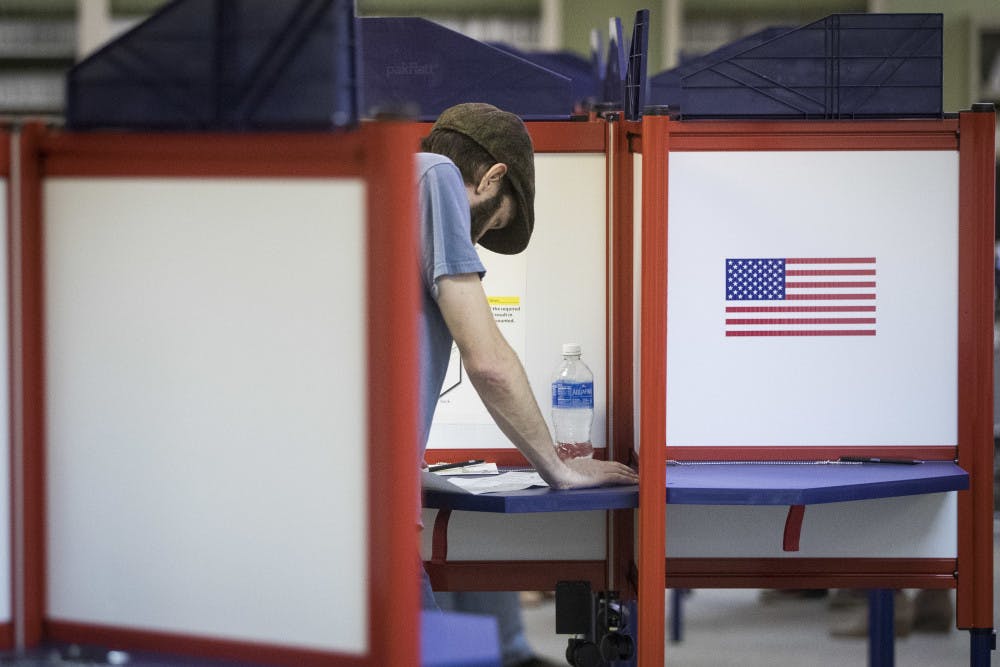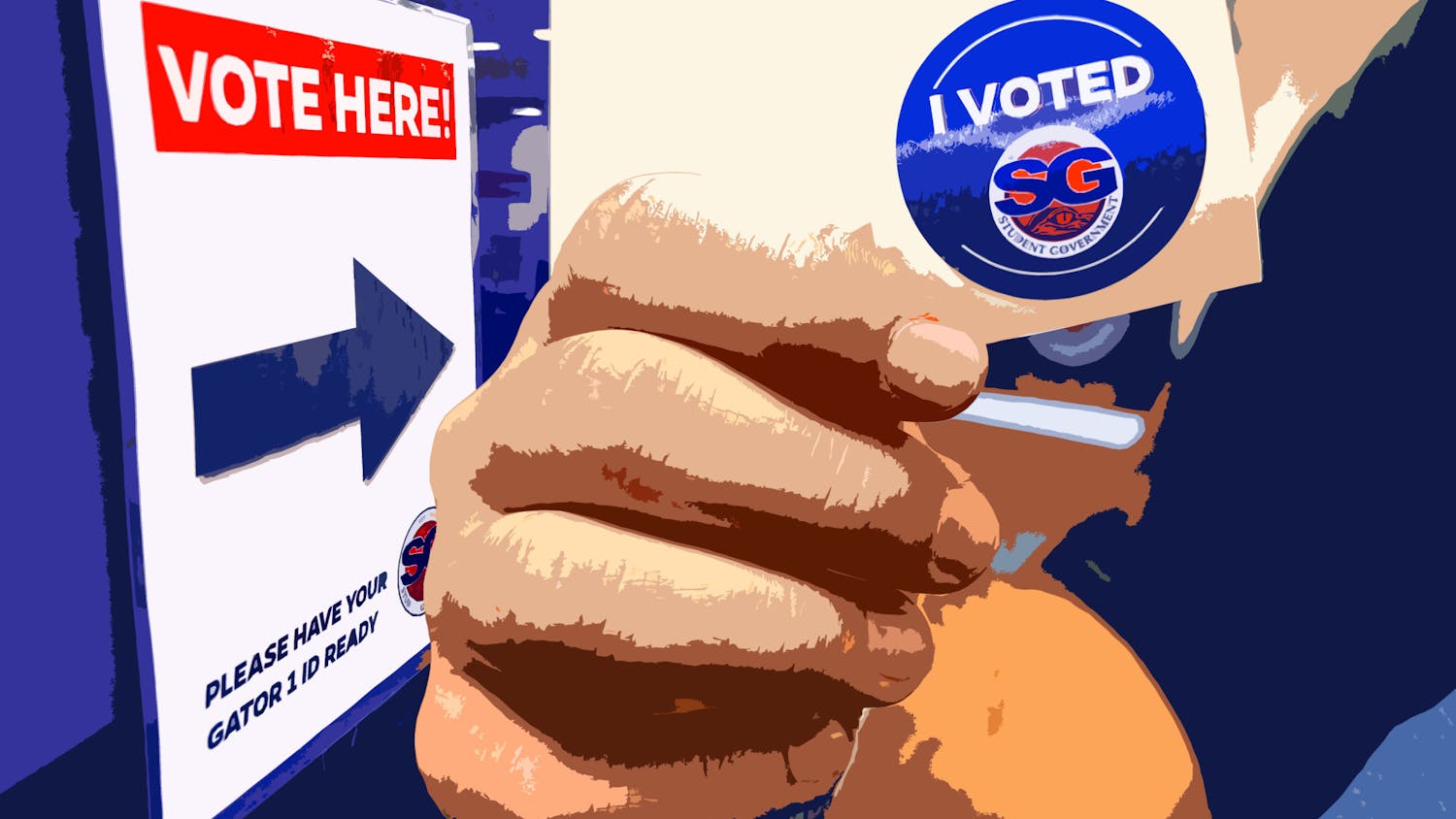Some students fear a proposed bill in the Florida Senate could make voting more difficult for young and low-income Florida voters.
Florida Sen. Jeff Brandes (Pinellas County, Republican) filed the bill last Friday, which would prohibit a voter from using their ID to confirm or challenge their address.
If the amendment passes, the bill could become a law on July 1, months before the 2020 general election.
Mackintosh Joachim, a 20-year-old UF political science and women’s studies junior and a former Student Government senator, said he thinks the bill is a tactic to discourage college-aged and low-income voters from voting in elections.
Joachim believes that by filing this bill, Brandes is also trying to prevent young people from voting for progressive candidates.
“It’s just another way to suppress votes, like the grandfather clause or the poll tax,” Joachim said.
Things like the grandfather clause and poll taxes disenfranchised black voters during the Jim Crow era.
Sen. Brandes could not be reached for comment as of Tuesday evening. The Alligator attempted to reach him via phone and email multiple times.
The bill would likely affect the voting process for people like Aren Saini, a 20-year-old UF biology junior.
Saini’s home address in Tampa is listed on his ID, but he registered to vote in Alachua County so he could conveniently vote at the Reitz Union.
If the bill passes, Saini said he would have to change the address on his voter registration, travel home to vote or use mail-in absentee ballots.
“Florida is already very gerrymandered for Republicans right now, so they just want to disenfranchise more left-wing voters, generally low-income college students who don’t have addresses matching,” Saini said.
While changing one’s voter registration address is an option, another alternative would be to update the address on the ID.
However, because some college students change their local address every school year, the more than $30 charge for the address change on a driver’s license could become costly, Joachim said.
On the other hand, Mark Merwitzer, a 19-year-old UF political science sophomore, said he thinks it’s extremely unlikely that the bill would pass.
Merwitzer said that in order for a bill to “really be concerning,” it needs supportive leadership, support of the Committee Chair and a House or Senate companion.
“While it is important to bring attention to things like this, I think that what we should be focusing our attention on are bills that are an actual threat and that actually have a chance of passing,” Merwitzer said.
Contact Samantha Chery at schery@alligator.org. Follow her on Twitter @SammyChery4276.
A voter reads his ballot at the Hamilton County Board of Elections as early voting begins statewide, Wednesday, Oct. 12, 2016, in Cincinnati.






